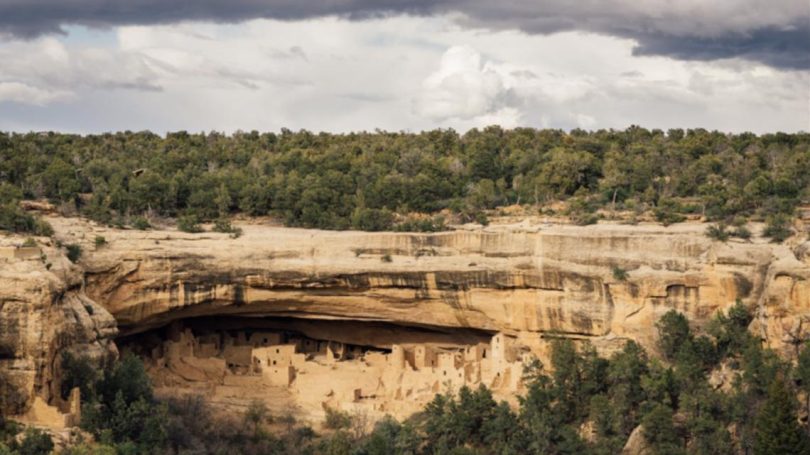[ad_1]
Mesa Verde National Park and Dinosaur National Monument have long been threatened by oil and gas drilling, but researchers are hopeful
COLORADO, USA — Oil and gas development is threatening some of Colorado’s best known historic sites, according to a new report.
The review from the Coalition to Protect America’s National Parks and Archaeology Southwest says Mesa Verde and Dinosaur National Monument have long been threatened by oil and gas drilling.
There are tens of thousands of oil and gas wells on land around Dinosaur National Monument and some are within the monument itself, it said.
“This threatens the resources protected within the boundaries,” preservation archaeologist Paul Reed said. “Because of the way our laws are set up, we could have oil and gas on the door step of these irreplaceable places.”
The coalition is worried that oil and gas work will turn sacred spaces into industrial zones. These zones, according to the report, could threaten the water supply, change scenic views and light up the otherwise dark night sky with flares that can be seen for miles.
Additionally, Mesa Verde is unique because it was preserved as a cultural national park, Reed said. This means it was created to protect over 5,000 historic, culturally significant sites than span over 12,000 years of human history.
Reed said that’s the main concern: oil and gas production has ramped up in southwest Colorado in recent years. The Bureau of Land Management (BLM) had projected up to 1,000 new wells at this point, Reed said, just north of Mesa Verde.
The biggest impact of oil and gas production at Mesa Verde that the coalition has seen is the methane cloud, which, Reed said, is a direct result of the release of greenhouse gasses from processing these resources.
At Dinosaur National Monument, the main concern is that oil and gas development will degrade the lands immediately surrounding the monument. Reed said the group is afraid that degradation will then creep into the lands of the monument itself.
Monuments, unlike parks, don’t have protections in place that disallow activities like drilling that were previously on that land to continue. If there was oil drilling on land that became a monument, usually they can keep drilling, Reed said.
The report’s goal is to responsibly manage oil and gas development and keep it away from these important spaces.
Reed said the coalition recommends that BLM slows down when it comes to leasing land for production. He recommends a balanced and considerate approach to leasing, especially in areas sensitive to tribal communities.
Reed also believes BLM, tribal communities, and the public should all be a part of these conversations on leasing lands.
The report calls on the Biden administration to protect more land from oil and gas leasing and add more setbacks around national parks and monuments.
RELATED: Denver finds cutting down on food waste can reduce emissions
RELATED: State council releases draft of plan to improve air quality in Colorado
[ad_2]
Source link








